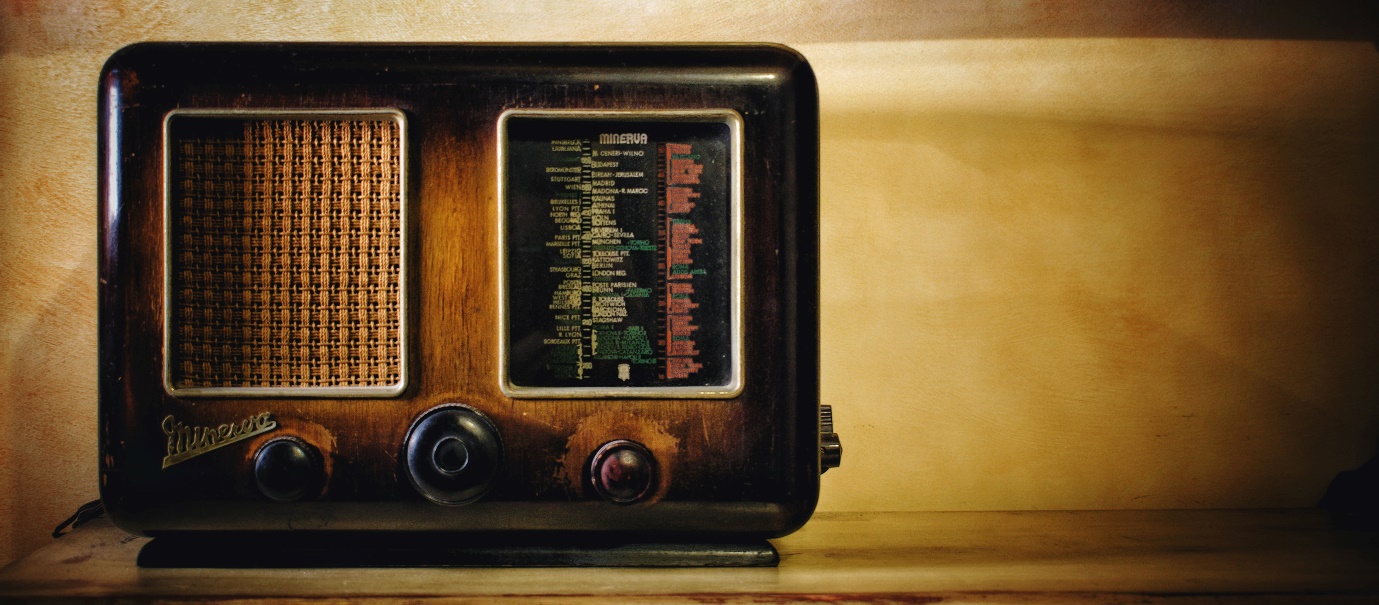
Source: https://unsplash.com/photos/idwpKeO-ZWk
In today’s culture, radios are standard technology in both the home and the car. No matter how old or young they may be, it would not be easy to find someone in today’s society who has never heard of, seen, or used a radio. But it wasn’t always like that. Before the 19th century, wireless radio transmission was only possible in science fiction. Even after the radio’s invention in the late 1800s, it was a while before they were widely used and fixtures in homes.
The history of British radio is one of innovation. From the primary days of radio broadcasting to the age of television, British inventors and innovators have been accountable for many of the most critical developments in the field.
First Wireless Telegraph System in Britain
In the early 1900s, Guglielmo Marconi was already a well-known name when he helped create the first wireless telegraph system in Britain. Later, he would become involved in developing radar systems and satellite communications, earning him a place among history’s greatest inventors.
FM Broadcasting & Digital Radio

Source: https://www.freepik.com/free-vector/radio-host-concept-idea-news-broadcasting-studio-radio-dj-interviewing-person-podcasting-through-microphone-flat-vector-illustration_29175115.htm#query=digital%20radio&position=8&from_view=search
The British love of technological innovation is no different than in radio. They’ve been innovating in this field since the early 1900s, and as you’ll see, that innovation hasn’t stopped since then.
The first significant innovation in the radio was the invention of FM broadcasting in the 1930s. It was a giant leap forward for radio and television, allowing for more efficient content distribution across multiple channels rather than just one channel.
In the 1980s, British radio innovators developed digital radio, which has been used by many broadcasters worldwide. It allowed them to create new ways of broadcasting shows using fewer resources and increasing their overall efficiency.
Development of Wireless Telegraphy
British radio was born out of a need for communication. In the early days of Britain’s colonies, there was a lot of distance between people and between the colonies and London. It meant that communication was slow, expensive, and very limited.
In the late 19th century, two men named John Ambrose Fleming and Joseph John Thomson both realised that there was a way to use electricity to transmit signals over long distances at low cost: radio waves. Their discovery led to the development of wireless telegraphy, a system that uses an antenna to transmit signals over great distances at high speeds.
This breakthrough in communications technology quickly became popular among business owners when they realised that it could be used for things like keeping track of employees on farms or tracking shipments throughout the country.
British Broadcasting Corporation
 Source: https://unsplash.com/photos/urZw70XRJio
Source: https://unsplash.com/photos/urZw70XRJio
The British Broadcasting Corporation (BBC) has been a cornerstone of British culture for more than 80 years. The BBC began as an arm of the British government, but it has since evolved into an international radio and television service.
The BBC is one of the oldest broadcasting organizations in the world. It was founded in 1922 by John Reith, appointed as director general of the council for national broadcasting. The BBC was established in 1927 and became a public corporation in 1927.
Recently, we’ve seen significant developments in British radio broadcasting with the launch of BBC Radio 1 by David Frost in 1967. It became Britain’s first national pop station. BBC Radio 2 by Giles Montagu created the breakfast show format that is still used today.
Discovery of AM, VHF and DAB
The BBC also invented many new technologies for use in broadcasting:
- AM (amplitude modulation) technology for longwave transmissions
- VHF (Very High Frequency) technology for shortwave transmissions
- DAB (Digital Audio Broadcast) technology for digital terrestrial radio broadcast
Conclusion
To sum up, radio technology is pervasive in modern society. Radio technology underpins many applications, including broadcast radio and television, mobile phones, wireless connections, the Internet of things, and much more. Particularly in Britain, Radio has evolved and innovated more than in any other country.

Muhammad Asfandyar is a lawyer having extensive experience in creative content writing, proofreading, legal and academic research writing. He can be reached at asfandyar.edw@gmail.com
